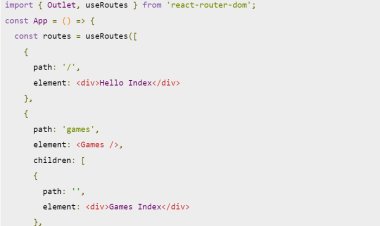Using the React useImperativeHandle Hook to Enhance Your Components
Learn how to leverage the React useImperativeHandle hook to improve the performance and maintainability of your components. This tutorial will walk you through implementing this powerful feature in your projects.

How the React useImperativeHandle Hook Can Help Enhance Your Components
The React useImperativeHandle hook can be used to help enhance components by allowing parent components to access the internal state of a child component. By using this hook, you can create a more controlled and secure flow of data between a parent and child component. This hook is especially useful when dealing with more complex components, such as a form or a complex UI component. With useImperativeHandle, you can control which state values are exposed to the parent component, thus allowing for a more secure and controlled flow of data. Additionally, the useImperativeHandle hook can help to improve performance by reducing the number of props or state values that are passed between components.
What the React useImperativeHandle Hook Does
If you've ever written a React component that had a child component, you may have noticed that you can't access the parent component's methods from the child. This is because the this keyword is bound to the child component instance.
The React useImperativeHandle Hook lets you access the parent component's methods from the child component. This is useful for when you want to invoke a parent component's method from the child component.
To use the useImperativeHandle Hook, you need to pass a callback function to the child component. This callback function will be invoked with the parent component's methods as arguments.
Here's an example of how to use the useImperativeHandle Hook:
import React, { useImperativeHandle } from 'react';
function ChildComponent(props) {
useImperativeHandle(props.callback, () => ({
invokeParentComponentMethod() {
props.parentComponentMethod();
}
}));
return (
);
}
export default ChildComponent;
How to Use the React useImperativeHandle Hook
The React useImperativeHandle hook is used to expose methods or other data from a wrapped component to the parent. This can be useful when you want to pass a ref to a child component but want the parent to have access to some of the data and methods in the child.
To use this hook, you should start by creating a ref in the parent component.
const ref = React.useRef();
Then, you should wrap the child component with React.forwardRef and pass the ref you created as an argument.
const WrappedChild = React.forwardRef((props, ref) => {
return <Child {...props} ref={ref} />;
});
Next, you should use the useImperativeHandle hook in the child component to expose methods or other data from the child to the parent.
const Child = (props, ref) => {
const [data, setData] = React.useState([]);
React.useImperativeHandle(ref, () => ({
getData: () => data
}));
return (
// child component code here
);
};
Finally, in the parent component you can use the ref to access the methods or data exposed by the child.
const Parent = () => {
const ref = React.useRef();
const data = ref.current.getData();
return (
<WrappedChild ref={ref} />
);
};
Using the React useImperativeHandle hook is a great way to pass data or methods from a child component to a parent without needing to use props.
Why the React useImperativeHandle Hook is Useful
React's useImperativeHandle hook is useful for creating refs imperatively. This allows for more flexibility when creating refs, as you can pass additional props to the ref. This is especially useful when you need to access the ref from a parent component.
The useImperativeHandle hook is also useful for creating higher-order components. This is because you can create a ref to the wrapped component, and pass it down as a prop. This gives you more control over the wrapped component, and allows you to access its methods and state.
Overall, the useImperativeHandle hook is a powerful tool that can be used to create more flexible and robust React components.
The Benefits of Using the React useImperativeHandle Hook
The React useImperativeHandle hook is a powerful tool that allows you to customize the behavior of child components from a parent component. It provides a mechanism for allowing the parent to control the child’s behavior, while still allowing the child to maintain control over its own internal state and presentation. With useImperativeHandle, you can customize the public interface of the child component, exposing methods and properties that the parent can then use to control the child. This can be used to improve the separation of concerns between parent and child components, making them more modular and reusable.
UseImperativeHandle can also be used to provide a more seamless integration between parent and child components. By exposing custom methods and properties of the child component, the parent can easily interact with the child without needing to know the internal details of the child’s implementation. This allows for a cleaner and more maintainable codebase.
Finally, useImperativeHandle is a great tool for creating higher-order components. By using useImperativeHandle, you can easily create components that wrap other components and provide additional functionalities. This provides a powerful way to create reusable abstractions that can be used to simplify complex user interfaces.
Example:
import React, { useState, useRef, useImperativeHandle } from "react";
const App = () => {
const [count, setCount] = useState(0);
const incrementRef = useRef();
useImperativeHandle(incrementRef, () => ({
increment() {
setCount(count + 1);
},
}));
return (
<>
<div>Count: {count}</div>
<button ref={incrementRef}>Increment Count</button>
</>
);
};
export default App;

















